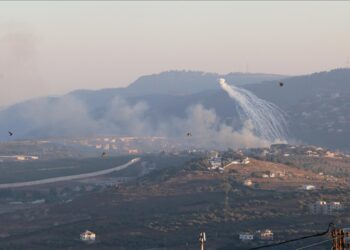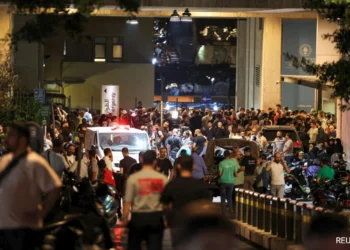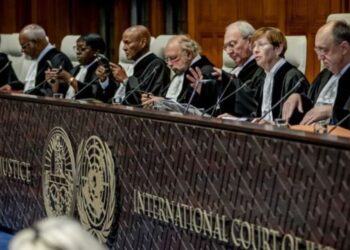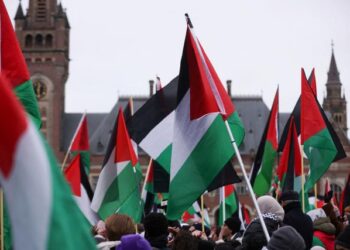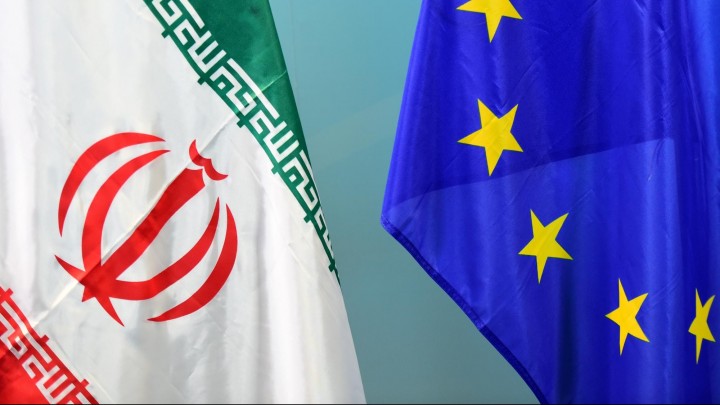Human Lives Human Rights: The presence of the Mujahedin-e Khalq Organization (MKO) in Albania has been met with both opposition and support, and there are numerous reasons for their presence in Tirana. However, the MKO’s presence in Albania poses significant threats to national security, as the group has a history of resorting to crime and illegality in pursuit of its goals. This report examines the positions of those who support and oppose the MKO’s presence in Albania, the reasons behind their stances, and the effects of the organization’s presence in Tirana.
Supporters
During the six years since the MKO’s complete presence in Camp Tirana, Edi Rama, the current Prime Minister of Albania, has been one of the main supporters of the group’s presence in the country. He has defended the MKO’s presence in Tirana on several occasions. The following is an examination of some of his recent positions on the matter.
On Thursday, February 9, 2020, Edi Rama, the Prime Minister of Albania and Secretary-General of the Organization for Security and Cooperation in Europe, spoke at a press conference at NATO headquarters in Brussels about recent tensions between Albania and Iran. More than two thousand members of the Mujahedin-e Khalq organization are based in Albania after being transferred from their camps in Iraq.
In a statement during a recent press conference, Edi Rama said: “Albania is proud to have given refuge to thousands of people threatened by the regime in Tehran. This is part of our tradition and identity. We were the only country that had more Jews after World War II than before. Therefore, we know very well that Albania was a safe haven for Jews during the Holocaust.”
He went on to say, referring to his country’s offering of asylum to Iranian citizens, “So we did this as a humanitarian act. It was not a statement against the [Iranian] regime, but we really have no intention of changing our tradition and approach to these people who need protection from a regime that threatens their lives.” The Albanian police had previously announced that it had uncovered a plot by an Iranian paramilitary network to carry out planned attacks against members of the Mujahedin-e Khalq organization in the country.
On Thursday, the Prime Minister of Albania described the Islamic Republic’s activities in Albania as “evil” and said, “Our position has been very clear. First, we expelled the Iranian ambassador, and recently we have also expelled other individuals involved in activities outside diplomatic regulations.”
Edi Rama emphasized that “this operation was carried out in cooperation with the United States.”
In December 2019, Albania expelled the third secretary and cultural attaché at the Iranian embassy in Tirana. In November 2018, it expelled Iran’s ambassador and another diplomat on charges of engaging in illegal activities that threatened the country’s security.
Ardi Veliu, the Chief of Police in Albania, has said that the Quds Force, a branch of the Islamic Revolutionary Guard Corps, was running an active “terrorist cell” that planned to target members of the Mujahedin-e Khalq organization in this country. Albania has been a member of NATO since 2009 and is one of America’s closest allies in Europe.
However, despite Edi Rama’s support for the presence of the Mujahedin-e Khalq Organization on Albanian soil, he recently criticized it for being problematic. While significant given his acceptance of a group with a terrorist history in his country, his remarks illustrate conflicts in the Albanian government’s approach to issues related to the Rajavi cult. On Friday, September 22, 2022, during the most popular political program on Albanian television, Opinion, the program’s host questioned Edi Rama about the presence of the Mujahedin-e Khalq organization within his country’s jurisdiction.
Recently, Rama issued an order to sever diplomatic relations with Iran following cyber attacks on Albanian government systems. During a conversation with a program host, he stated that accepting members of the Mujahedin-e Khalq organization on Albanian soil was based on humanitarianism. However, he confirmed that the Mujahedin-e Khalq organization had gone beyond legal frameworks and taken actions that led to the deterioration of Iran’s relations with Albania.
In the course of this conversation, it would have been beneficial if the program host had asked another question of the Albanian Prime Minister regarding the delayed expression of his opinion. While it is not expected that the host of a domestic political program in Albania be informed about the human rights issues faced by families of Mujahedin-e Khalq members, they should be aware of the violation of members’ rights within the Mujahedin-e Khalq camp. An Albanian journalist should know that members inside the Mujahedin do not have access to the outside world and have no contact with their families. For an informed audience, the question always arises as to whether preventing the leaders of the Mujahedin from communicating with their families is not a human rights issue?
The fact that the Albanian government does not issue visas for families of members trapped in the Mujahedin-e Khalq, who in many cases have been unaware of their loved ones’ whereabouts for over thirty years, is a human rights issue. Although issuing visas always brings tourism boom to the destination, issuing visas for the families of Mujahedin-e Khalq members has a humanitarian aspect as well. In fact, the basis for issuing visas for families is much more humane than accepting three thousand members of Mujahedin-e Khalq with documented histories of violence and terrorism.
Opponents of the Mujahideen’s presence in Albania
Two well-known journalists from Albania, who are among the main opponents of the presence of the People’s Mujahedin in Tirana, have once again shown their opposition to the presence of the Rajavi sect by exposing this sect. Dr. Olsi Yazchi and Jerji Thanasi analyze the latest scandal of the People’s Mujahedin Khalq in Albania. Various Albanian media have reported that on January 17, 2020, the Albanian police sent a report to the US Embassy in Tirana, revealing to the Americans the extent of crime, drug trafficking, and human trafficking by the MEK from Albania to Europe. The report was later claimed to be false by the Albany State Police. However, many Albanian media have reported the level of crime in the Mujahedin Khalq camp. The senior commanders of the People’s Mujahedin, namely Narges Abrishamchi and Hassan Naib Agha, were arrested on charges of drug trafficking. Mohammad Sadat Darbandi was involved in stealing money from a pharmacy in Kamez. On the other hand, the People’s Mujahedin is involved in an extensive process of human trafficking to Europe.
However, those Albanian prosecutors who open criminal cases against the Mujahideen lose their jobs. Those who obey the Mujahedin Khalq’s orders keep their jobs. Journalists are blackmailed so that they do not report the crime of the Mujahedin Khalq. On the other hand, retired American colonels such as Wesley Martin claim that they provide the security of the People’s Mujahedin with the cooperation of the American Embassy in Tirana. In the continuation of the discussion, Olsi and Jerji try to solve this puzzle: who defends the crime of Mujahedin Khalq in Albania? Eddie Rama’s government or the American embassy?



